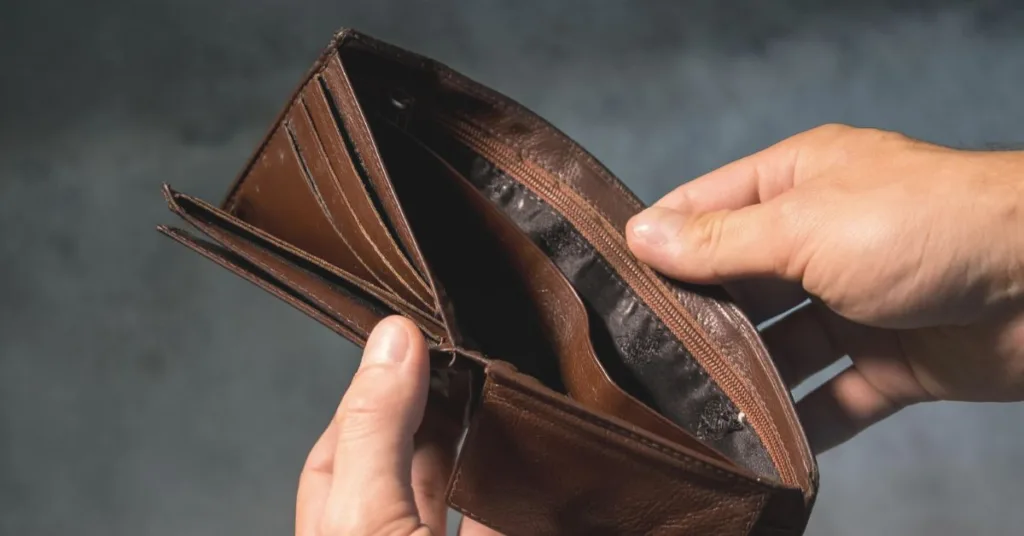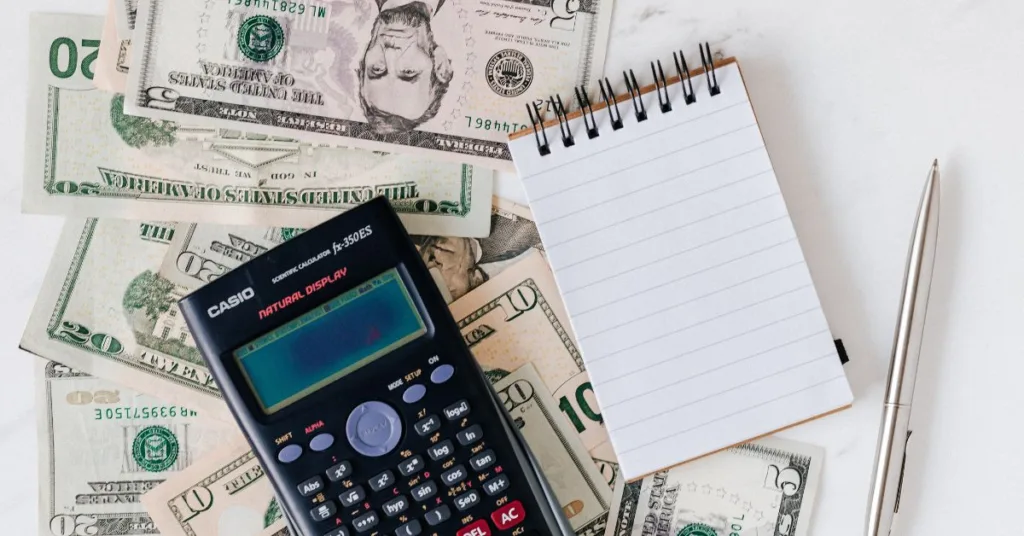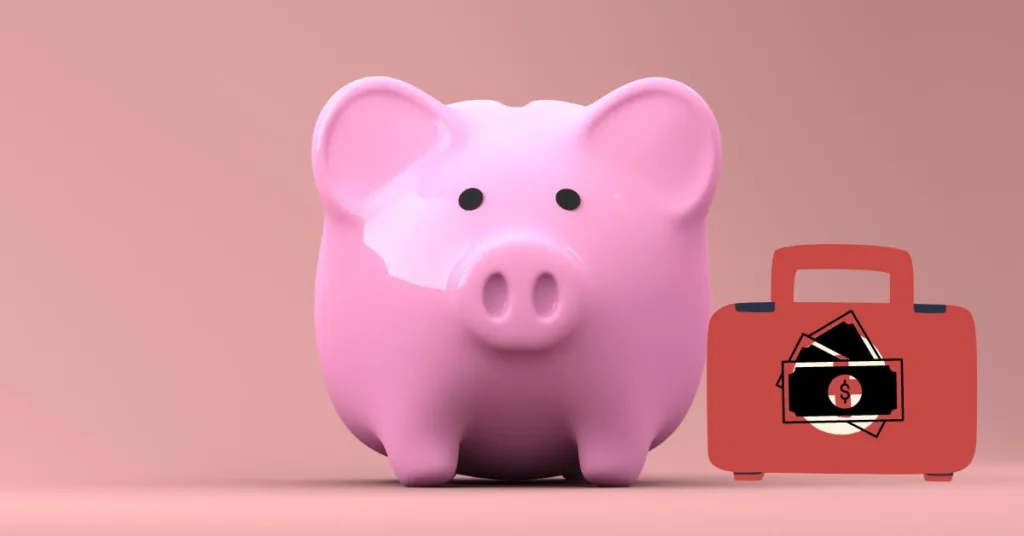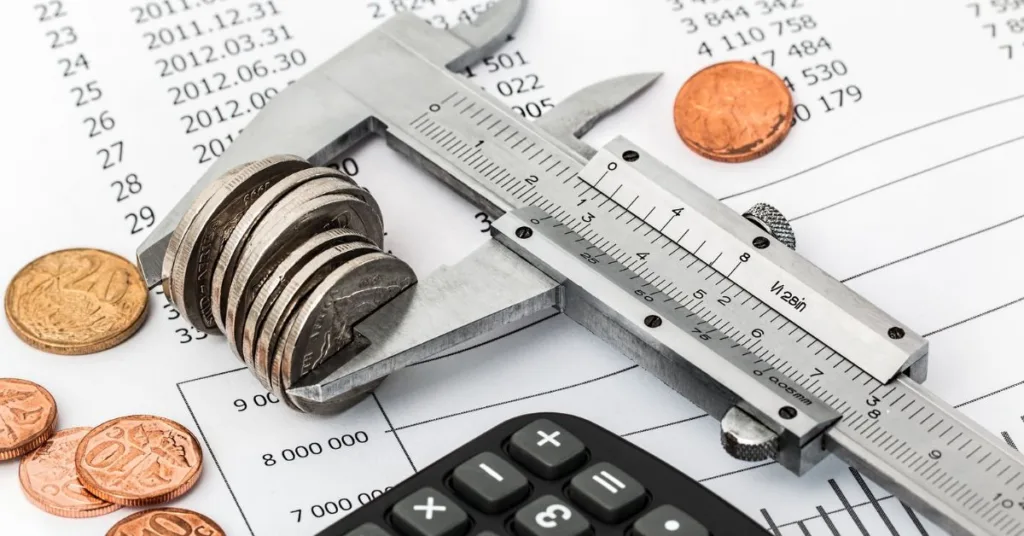This post may contain affiliate links to products or services. I may receive a commission for purchases made through these links with no cost on you. Please read my disclosure for more information.
Hey friends! Ever heard of the word “broke millionaire”? What is a broke millionaire? Is there such thing?
Well, that’s what I called myself at this time (hopefully, not for too long).
But you ask, how can someone be a millionaire and at the same time broke? Well, hear me out.
WHAT AND WHO IS A BROKE MILLIONAIRE?
Before we answer this question, let’s take a step back.
What does it mean to be a millionaire anyway?
Being a millionaire means that your assets exceed your liabilities by 1 million or more (your net worth) based on your personal financial statement.
I qualify for this, yey! But does that mean I have 1 million cash sitting in my bank account? Most probably not.
It just means that I own stuff that has a value that could be converted into cash upon sale, such as real estate, jewellery, car, etc.
As an example, I own a real estate worth million, making me a millionaire.
However, I don’t have enough cash coming in to pay our bills. We may try to sell our property, but it will take time.
With that, broke millionaire is someone who, despite having a high net of one million or more, is facing financial challenges or difficulties.
While being a millionaire shows substantial wealth, the description of “broke” implies a lack of financial liquidity or the existence of financial issues that may hinder the person’s ability to meet financial obligations or maintain a desired lifestyle.
WHY SOMEONE BECOMES A “BROKE MILLIONAIRE”
Although I hate to admit it, I fall in this category of “millionaire”. How did I end up here?
There are many factors, but I guess the main factor is insufficient financial education.
After I’ve seen my net worth, it made me realize that I made many financial mistakes along the way. Here are some reasons why people become broke millionaire, but I will just be mentioning few that relates to me:
1. Lack of liquidity
Despite having a high net worth, large portion of our money are invested in illiquid assets like real estate, and condominium.
This has restricted our ability to access immediate cash when needed and made it more challenging to cover our day-to-day expenses.
2. High Debt Level
Although we own significant assets, we also owed a substantial amount of money to banks to finance my investments.
We also borrowed to family members to finance some projects that sadly, were unsuccessful.
These has taken a toll on our finances since we must set aside a fixed sum of money every month.
Moreover, there are unforeseen circumstances or changes in our life that affected our ability to pay. This has cause financial stress to us.
3. Financial Mismanagement
Making poor financial decisions, overspending on things here and there, being scammed, investing without doing our due diligence, and not making any financial plans are just some of the mistakes people make in their finances.
We made these financial mistakes ourselves. And all this “little” things have piled up over the years that led us where we are right now.
4. Market Volatility
Our stock portfolio was affected due to the market volatility that heavily relies on the market trends.
Since the pandemic hits, most of the stock prices were low. Although, our investment was not that huge but still decreases our overall net worth.
Therefore, we cannot sell them just yet to get cash because we will be on a loss side.
Also, most of the businesses came to a slow during the COVID-19 pandemic hence, prices were mostly going down.
HOW TO BREAK FREE FROM BEING A BROKE MILLIONAIRE
Now that we know what a broke millionaire is, I’m pretty sure you don’t want to be in this kind of financial situation.
Here are some lessons learned that I wish to share to you to help you steer clear of financial troubles while building and maintaining substantial wealth:
1. Create a monthly budget and stick to it
“A budget is telling your money where to go instead of wondering where it went.” – Dave Ramsey, The Total Money Makeover
Budgeting is simply allocating your expenses. By making a budget, you will have a clear picture where your money goes.
Develop a realistic budget that summarizes your income, expenses, and savings goals. You can just do it in a notebook or even in a spreadsheet for faster calculations.
After doing this, you will know if you have a positive or negative cash flow. Form there, you can make the necessary adjustments.
You can easily evaluate where you can cut expenses by identifying your needs vs wants.
It is advisable to do a monthly evaluation and adjust your budget as needed.
Sticking to a budget helps you manage your spending and build a solid financial discipline.
Recommended reading:
2. Build Your Emergency Fund
“A big part of financial freedom is having your heart and mind free from worry about the what-ifs of life.” – Suze Orman
Emergency fund are cash reserves that are set aside for unexpected expenses or financial emergencies.
It serves as a financial cushion for individuals or families to cover unforeseen costs, such as medical bills, car repairs, or job loss, without having to rely on borrowing money or going into debt.
This fund acts as a financial safety net, offering peace of mind and stability during challenging times.
Experts’ advice is to aim at least three to six months’ worth of living expenses.
After I learned that I don’t have enough cash to cover our expenses, it dawned on me that I didn’t save for emergency fund.
This has been a repetitive advice given by many financial gurus since I started my financial journey.
Although I heeded their advice at the beginning but ended up distracted along the way and did not do it.
Don’t make the same mistake as I did.
Recommended reading: Emergency Fund: Your Financial Safety Net
3. Pay off Debt and Avoid It
“Every time you borrow money, you’re robbing your future self.” – Nathan W. Morris, Your 33 Day Money Action Plan
Be cautious with debt and avoid accumulating excessive liabilities.
If you have a debt and want to pay it off faster and strategically, you can use either Debt Avalanche Method or Debt Snowball Method.
The first method is paying off your high-interest debts first with above the minimum payment. This will save you from the high interest payments.
While the latter method is paying your debt in order of smallest balance to the largest regardless of the interest rate. Celebrating the small wins.
Minimizing your debt ensures that a significant portion of your income isn’t eaten up by interest payments.
Recommended reading:
- Understanding Consumer Debt
- 7 Steps on How to Manage Credit Card Debt
- How the Debt Avalanche Method Works
- How the Debt Snowball Method Works
4. Live Frugally
“Being frugal doesn’t mean slashing your spending or depriving yourself of things that you enjoy. It means knowing the value of a dollar and making every effort to spend it wisely.” – Frank Sonnenberg
Being frugal is not being cheap, rather it means you are being careful on how you spend your hard-earned money.
Just because you have a high income doesn’t mean you should spend it all.
Be wise in spending your money and only buy things that you need to avoid unnecessary waste/ expenses.
Admit it or not, most of the things that we buy doesn’t necessarily add value in our life.
Why buy 10 bags when you just needed 2 or 3 (for different occasions)? If you can, why not, but if you have a limited income, better think about it.
Living a frugal life involves making conscious choices to save and invest rather than constantly increasing your lifestyle expenses.
Recommended reading: Embracing Frugality: Living Below Your Means
5. Increase Your Income
“The way to get started is to quit talking and begin doing.” – Walt Disney
If you can, get another side hustle that will generate you extra income.
Having another source of income will help you in sustaining your daily needs.
You can sell products or services that uses you specialized skills.
Side hustles can be done online or in person, you just need the must-have knowledge and skill set to perform the job properly.
For most people, their side-hustles have eventually become their main source of income after perfecting it.
I hope that this will happen to me and you in the future.
Having additional money coming in on a monthly/ daily basis will allow you to break free from the chains of having a limited income.
Recommended reading:
- How to Start Selling on Etsy in 6 Simple Steps
- 24 Popular Digital Products to Sell on Etsy
- How to Create Printables Using Canva
- 23 Summer Side Hustles to Earn Extra Money
6. Educate Yourself
“It’s simple arithmetic: your income can grow only to the extent you do.” – T. Harv Eker, from Secrets of the Millionaire Mind
There are lot of things I don’t know about, especially with regards to money.
Realizing how money can limit what I can and can’t do, it made me become firm in my decision. That I need to be financially independent so I can be free to do the things that matters most to me.
After getting hit with this realization, I realized that I need to do something. I need to learn more.
Education is very accessible nowadays and are mostly free online.
But the problem arises on information overload, there’s so much to take that sometimes it can even become confusing.
Since people have their own opinions and experiences that backed what they teach. You will find that some may contradict with other opinion/ teaching.
So it’s up to you to find out those teachers that resonates with what you believed in and the strategies they teach.
I also noticed with free resources is that they don’t give you much personal advice, it is more directed on general audience.
Therefore, it is essential that you need to find a successful mentor that you looked up to.
That will tell you exactly what you need to know and how to implement it. So you would have the faster route to success.
This will save you tons of time and heartaches along the way.
Financial literacy is key to making informed decisions about your money.
Recommended reading: 7 Best Financial Books for Beginners
7. Invest and Diversify
“Rule No 1 is never lose money. Rule No 2 is never forget Rule No 1.” – Warren Buffet.
Before investing in a long term or illiquid assets, make sure that you have enough emergency fund in place, you have a budget, living frugally and with no or minimal debt.
When it comes to investing, my advice is to learn the ins and outs of the business/ investment you want to venture into.
Do your own research and look for reviews online to check the legitimacy of the investment.
Another tip is to diversify your investments across different asset classes such as stocks, bonds, real estate, and others.
The highly popular advice you might have heard is that “Don’t put all your eggs in one basket.”
Diversifying your investments helps spread risk and ensures that a downturn in one area doesn’t wipe out your entire wealth.
I recommend investing on assets that can generate passive income on a daily or monthly basis.
Examples of which can be apartment rentals, an online store selling digital products, blogging, video content posted in YouTube, Facebook and Tiktok.
8. Protect your assets
“Life Insurance is a mitigation to the risk of your life. Financial Freedom is a mitigation to the risk of living your life!! Choice has always been yours.” – Manoj Arora, From the Rat Race to Financial Freedom
After accumulating assets, consider insurance options to protect your assets and lessen the risks.
The first asset that you need to protect is yourself.
Consider getting health insurance, life insurance, property insurance, fire, insurance, and liability coverage, etc…
Having these on place will safeguard your wealth from unexpected events.
9. Evaluate your Finances Regularly
You have to review your financial goals on a monthly basis and assess your progress so you would know if you were reaching your desired outcome.
Adjust your investment strategy and financial plan based on changes in your life, the economy, or market conditions.
Regular check-ups help you stay on track and make necessary adjustments to reach your financial goal.
By implementing these tips, you can avoid the common pitfalls that might lead to financial challenges for individuals with substantial wealth.
Remember that financial success is not just about accumulating wealth but also about managing it wisely.
conclusion
Broke millionaire is not about having an empty wallet. It’s more of having like a wallet full of monopoly money – looks good, but you can’t buy anything real with it.
It doesn’t always imply that the person is impoverished. Rather, it highlights the limits or financial difficulties that a person with a large net worth faces.
The major takeaway is that having assets does not ensure financial stability on its own. Sound money management is necessary to keep one’s financial situation steady and comfortable.
WHERE ARE YOU NOW IN YOUR FINANCIAL JOURNEY?
This is where I am now at my financial journey, a broke millionaire.
But right now, I am stepping into educating myself and building my emergency fund. My initial emergency fund target is 3 months salary.
How about you? Where are you now in your financial journey? Please let know in the comment section.
If you are unsure, please check out my FREE Net Worth Calculator where you can gauge where you are now right now in your financial journey.
ACTION PLAN
1. Download my FREE Net Worth Calculator.
2. List down your Assets (things you own) and Liabilities (things you owe).
3. Check your total net worth, do you have a positive or a negative net worth? Congratulations if you have a positive Net Worth! If you have a negative Net Worth, don’t worry, you’ll get there too.
4. If you want to track your monthly net worth, you can check out my Net Worth Tracker on my Etsy shop HERE.





